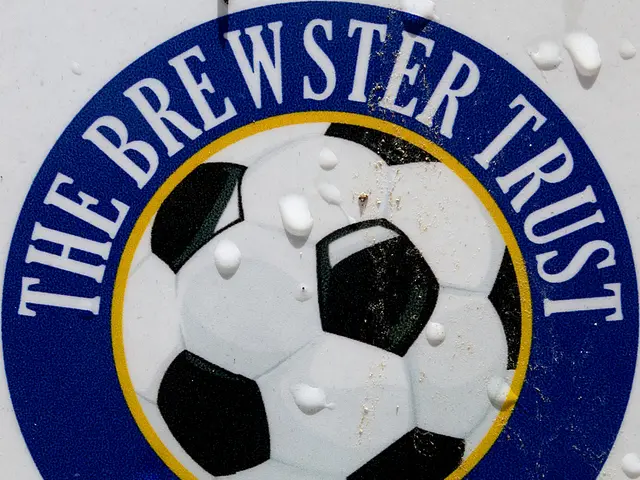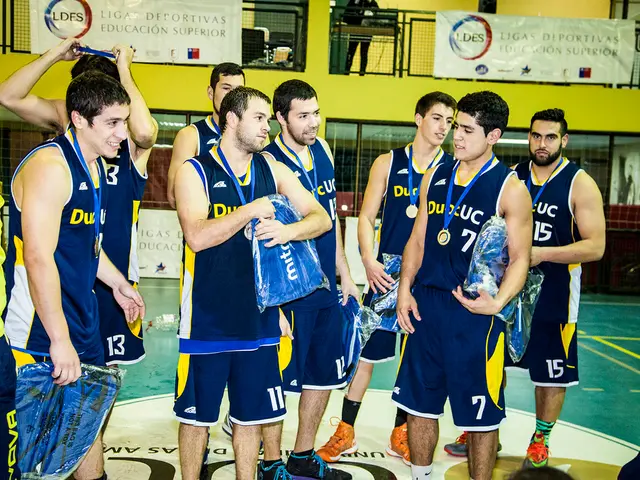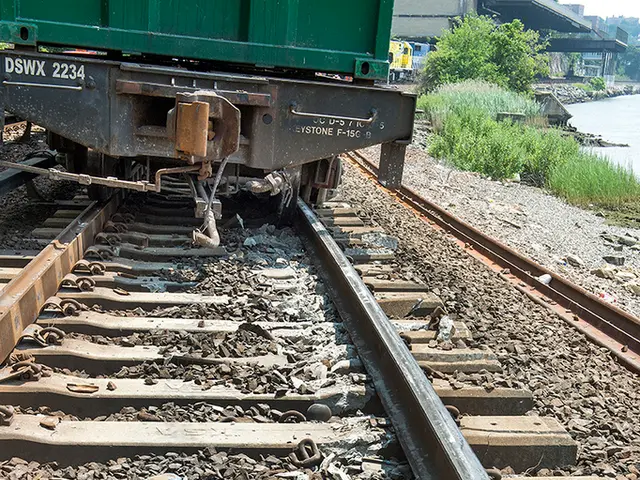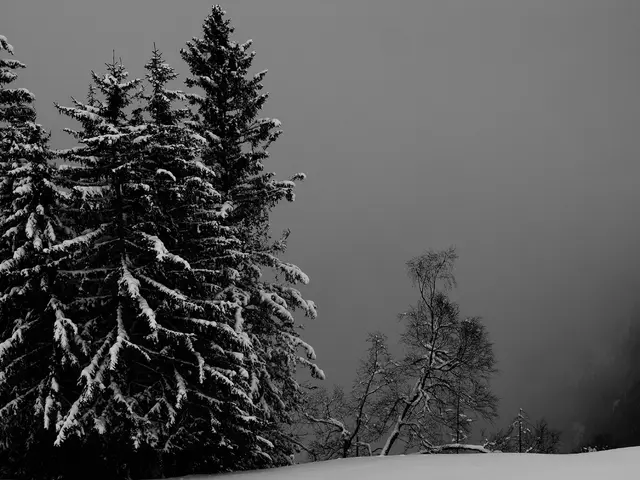Swimmer Alsa, competing for three years without claiming a world championship.
Paris 2024 Canoe Slalom Championships: Russian Athletes Compete as Independents
The deafening roar of spectators echoed across the Olympic canoeing and kayaking competitions, a stark contrast to the silent venues of the 2020 Tokyo Olympics, which were devoid of crowds due to COVID-19 restrictions. This year, the €75 million water stadium in Vaires-sur-Marne, France, with a seating capacity of 24,000, was packed to capacity, a far cry from the empty stands of the past.
Only three Russian athletes were allowed to experience this revitalized atmosphere: canoers Alexei Korovashkov, Olesya Romasenko, and Zakhar Petrov, who had twice finished fourth at the Paris Games. The majority of Russia's rowers refused to accept neutral status, with slalomists denied a chance to qualify for the Olympics, although they received a nominal entry from the International Canoe Federation (ICF) in 2023.
Russian canoe slalom athlete Alsu Minalova, a two-time world bronze medalist in the slalom event, spoke to our website, Sport, about the challenges her team has faced. "The main issue was obtaining entry permits from countries hosting Olympic qualifying events. Not all were willing to issue visas, especially in Europe, where most major events take place," Minalova explained.
It wasn't until March 2025 that Russian slalomists were granted real entry to competitions following the Olympic Games. The first major event after a three-year hiatus was the European Championships, held at the same Paris stadium in Vaires-sur-Marne in mid-May.
The absence of Russian athletes on the Olympic podium since their 2008 bronze medal victory in the canoe double has been a troubling trend. Minalova, who debuted at the 2020 Tokyo Olympics, finished 17th in the kayak single and 14th in the canoe single. After the Games, she won bronze in the team event at the World Championships, expressing her confidence that "the next season would be mine."
Unfortunately, the next season, as well as the two following it, did not materialize. In March 2022, the ICF followed the recommendations of the International Olympic Committee (IOC) and barred Russian athletes from competing under its banner. Minalova, who had tasted Olympic competition and found it unlike any other, saw her dreams dashed by the sanctions.
"I participated in the Olympic Games, experienced something unreal, incomparable to anything, not even the World Championships. I thought I would dominate the next season. And just then, we were sanctioned," Minalova shared. Many older athletes left the sport, understanding they wouldn't outlast the suspension.
The duration of the sanctions was uncertain, leaving athletes in a state of limbo. Even after the IOC recommended international federations allow Russians to compete neutrally in qualifying events, there was no guaranteed chance for anyone. Firstly, not everyone could obtain this neutral status, with refusal coming without explanation. Secondly, many sports federations within the country chose not to compete under such conditions.
Some athletes hurriedly changed their sporting citizenship, some left sports, while others decided to wait. Minalova, who promoted canoe slalom on her social media and attracted attention thanks to her participation in the TNT project "Titans," opted to wait. "In the first years, when I watched World Cup stages, European Championships, I admit, I cried. I wanted to be there - among the strongest, to compete. It was very hard. Thoughts like 'Is it worth continuing?' appeared because it was unclear how long the suspension would last. But I dreamt, and I still dream, of a new - at least one more - Olympic cycle. I want to compete for medals at the Olympic Games again. So, I decided - whatever happens, I will row until 2028," Minalzova shared.
The absence of Russian athletes from international competitions also affected their earning potential. Canoeists and slalom kayakers are not well-known in the country, so they are paid much less for domestic competitions compared to popular sports like figure skating. It's practically impossible to draw attention to oneself and one's sport in less popular sports without participating in international competitions.
Since the sanctions, Russian athletes and teams have switched to domestic alternatives for their equipment, as foreign manufacturers like Nike, adidas, Puma, and others have departed. Canoe slalom, however, presents unique challenges in this aspect, as there are only two licensed manufacturers in the world: in the Czech Republic and Slovakia. In the first years of isolation, there were problems with purchases and importing equipment into Russia, making the equipment even more expensive for Russian athletes.
Born in Switzerland in 1933, canoe slalom has become a popular sport with a significant increase in the number of nations sending slalom paddlers to major events since its first World Championships, held there in 1949 with athletes from only four countries - France, Switzerland, Czechoslovakia, and Austria. At the Paris Olympics, 84 paddlers from 32 National Olympic Committees from Africa, Asia, Europe, the Pan-American region, and Oceania participated.
The Russian Canoe Slalom Federation, established in 2007, is headed by Sergei Lavrov, then Minister of Foreign Affairs of Russia, who left the post three years later but remained the chairman of the supervisory council. By the time the federation was founded, Alsu Minalayeva, a future two-time world bronze medalist, was nine years old and had no idea what canoe slalom was until she saw unfamiliar youngsters rafting down a river in her hometown of Ufa.
Minalayeva quickly rose through the ranks, winning Russian championships and earning an invitation to the Olympic Reserve School. Despite a lack of infrastructure for canoe slalom in the country, Minalayeva trained on natural waterways, including a river in Ufa and a lake with warm water during the harsh winter.
During sports sanctions, the Canoe Slalom Federation opened two international-standard artificial channels in Ufa and Bogorodskoye (Moscow Oblast) during the period of isolation. These channels have aroused interest in the sport among children and parents, especially with top athletes returning home to share their experiences and conduct master classes.
In mid-January, the International Federation approved the neutral status of the members of the Russian team, including Mynazova. This approval came as a relief to Russian athletes who were training in Australia when they received the news. There, slalomists were testing the canoeing channel where the World Championships will be held in the fall. The right to participate in all key starts in 2025 was received already at the end of March, when the Russians were on a collection in the UAE.
Now, Russian canoeists can look forward to competing in the European Championships in Paris, the World Championships in Penrite (Australia), the World Championships for athletes under 19 and 24 in Foix (France), as well as the first and second stages of the World Cup in the Spanish Seo-de-Urgel and the French Pau respectively. The host countries have approved the participation of the Russians, and Mynazova hopes that there will be no problems with visas.
When Russian athletes finally receive clearance to compete in international events like the European Championships and World Championships, they will be ready. Mynazova and her team have been carefully planning and training, adjusting to new challenges and improving their skills. They are determined to give a good fight and hopefully bring home some medals. The Olympic Games in Los Angeles are three years away, and Russian athletes are eager to make a strong comeback.
Related Material:- Russia's Sports Sanctions: A Three-YearHiatus for Canoe Slalom- Alsu Minalova: Promoting Canoe Slalom and Dreaming of the Olympics- New Beginnings: Equipment Adjustments for Russian Athletes in Isolation- History of Canoe Slalom: From its Birth in Switzerland to the Paris Olympics- Canoe Slalom in Russia: A Growing Interest and a New Generation of Athletes
[Enrichment Data Integration]: The sanctions imposed on Russian athletes in 2022 are part of a broader trend where Russian athletes are being progressively allowed to compete in international events, often as neutral participants, as seen in other sports like cycling and fencing.
- New opportunities have arisen for Russian canoe slalom athletes since March 2025, with the International Canoe Federation granting them real entry to competitions following the Olympic Games.
- Alsu Minalova, a two-time world bronze medalist in the slalom event, dreams of a new Olympic cycle, hoping to compete for medals at the Olympic Games again in 2028.






